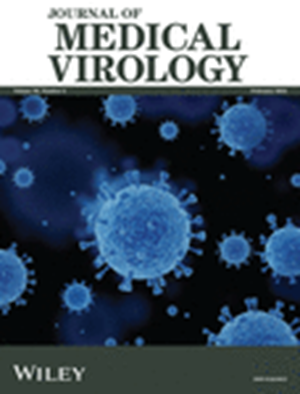Superior Performance of Newly Developed Alinity Anti-HCV Next Assay in the Diagnosis of HCV Infection
Abstract
World Health Organization recommends anti-HCV antibody testing for primary screening to be followed by HCV-RNA. However, current serological assays are prone to false-positive results. We ascertained the ability of the newly developed Abbott Alinity-i anti-HCV Next assay (Research-Use-Only) to resolve false-positives and profiled its performance edges. Samples (n = 2186) received from January to June 2024 were subjected to anti-HCV testing using Architect and anti-HCV Next (Abbott), and LIAISON XL MUREX HCV antibody assays. Samples were categorized based on the signal to cutoff (S/CO) of on-market anti-HCV assays (Architect and Liaison) as negative Architect <1 (n = 1537), equivocal Architect ≥1/Liaison- (n = 226), low-positive Architect+ ≥1 to <8/Liaison+ (n = 228) and high-positive Architect ≥8/Liaison+ (n = 195). Hepatitis C virus core antigen (HCVcAg) and HCV-RNA were quantified using Architect HCVcAg and Abbott real-time PCR, respectively. Performance on seroconversion and proficiency testing panels were assessed. Significant proportion of equivocal (99%) & low-positive (76.3%) samples were negative in Next (p < 0.0001). The signal intensities of Next were significantly lower for true-negative and higher for positives than the other two assays (p < 0.0001). Next exhibited superior (10–12 days) seroconversion sensitivity (2/4 panels) and comparable performance between genotypes (p > 0.05). Our findings suggest that the newly developed anti-HCV Next assay is configured better to resolve challenging false-positives and to achieve exquisite sensitivity, thereby reducing the burden/cost of retesting and expensive reflex testing for the effective cascade of care.

 求助内容:
求助内容: 应助结果提醒方式:
应助结果提醒方式:


